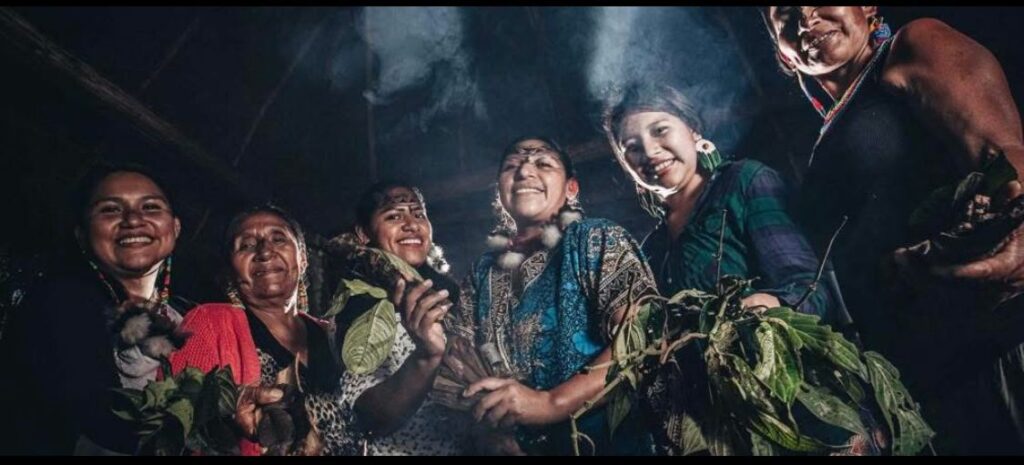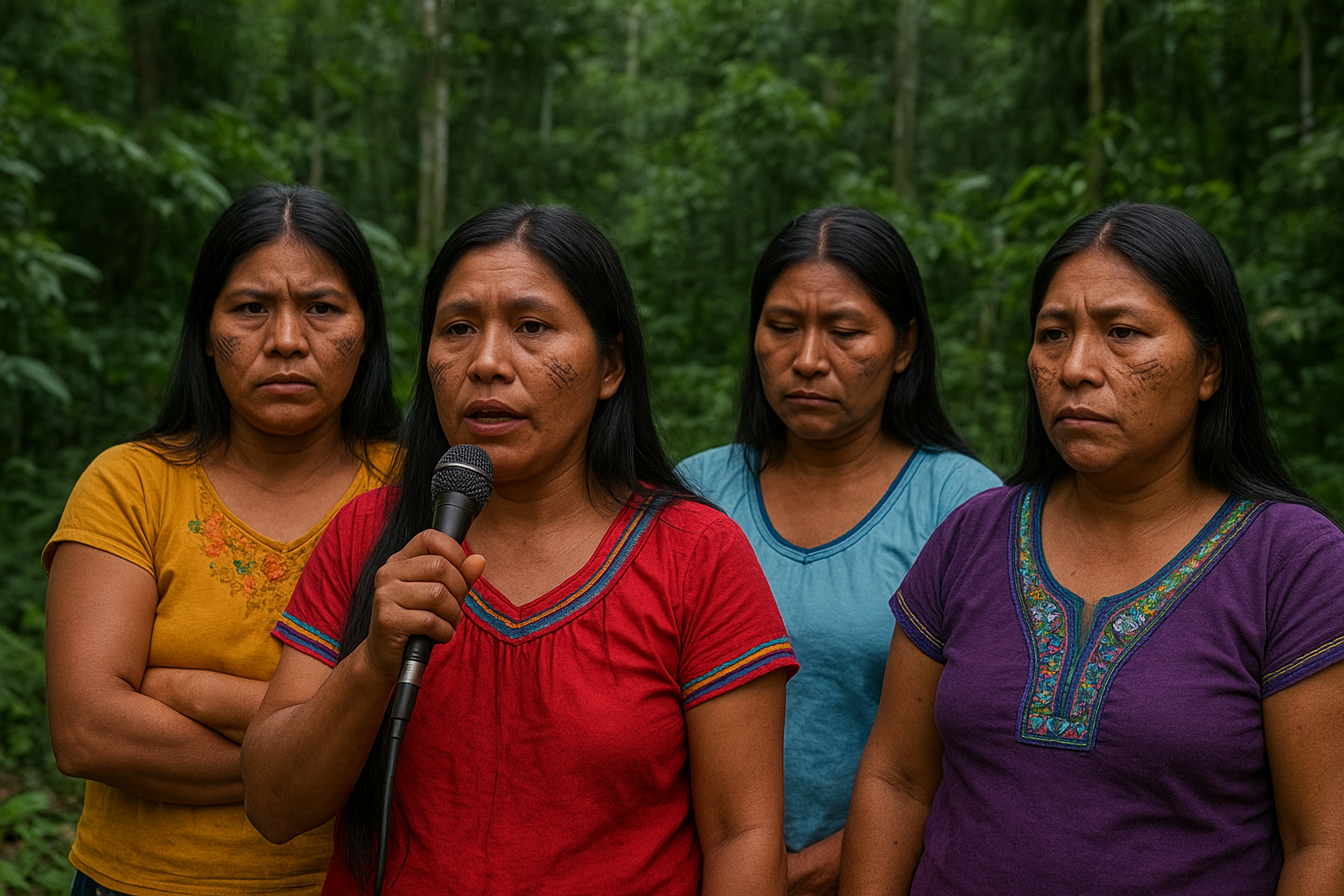In the heart of the Ecuadorian Amazon, where the rainforest is our mother and refuge, indigenous women sustain life, memory, and resistance. They are the guardians of our territories, of traditional medicine, and of the word.
That resistance, however, faces silent and brutal violence every day; a violence interwoven with patriarchy, structural discrimination, and neglect from the authorities.
Testimony of an indigenous woman:
I was 16 when they forced me to get married. They told me it was the right thing to do. But he would yell at me, hit me, make decisions for me… and nobody did anything. I didn’t know that was violence too.
In Amazonian provinces like Pastaza, Morona Santiago, and Orellana, more than 65% of indigenous women have experienced some form of physical, psychological, or sexual violence, according to data from the INEC’s “Encuesta Nacional sobre Relaciones Familiares y Violencia de Género” (National Survey on Family Relationships and Gender Violence, 2019).
This is exacerbated in remote Amazonian communities, where reporting crimes is even more difficult due to the great distances from the courts, the lack of interpreters in indigenous languages, and mistrust of the authorities. Many victims remain silent out of fear or hopelessness.
Voice from a community leader:
They tell us it’s “part of our culture,” but that’s a lie. Violence is not culture. Colonialism, machismo, and extractivism are violence [against women]. Oil companies pollute our land. Armed men intimidate our daughters. And the government abandons us.
According to the National Institute of Statistics, Census, and UN Women, 6 out of 10 indigenous women have suffered some form of violence.
In 2018, Ecuador enacted the Comprehensive Organic Law to Prevent and Eradicate Violence against Women, a legal milestone that has yet to be fully implemented in Amazonian communities. But violence is also expressed when women who defend their territory are criminalized, harassed, or murdered.
According to the organization Amazon Watch, in the past five years, at least 42 cases of criminalization against women defenders of the Amazon have been reported.
Taita Camilo, community leader:
Our ancestors did not teach us to dominate women. That came from outside. Today, we are beginning to understand that to love is to care, not to control. That our daughters deserve to live their journey without fear.
But it’s not all pain. There is also rebellion. There are networks. Networks of indigenous women leaders that have sprung up throughout the Amazon in recent years. Young women who are organizing to speak out in their own languages, to educate their communities, and to demand justice.
Feminist mobilizations have reached Quito and other Amazonian regions, have forged alliances with international organizations, and are raising awareness about women’s struggles in the Amazon.
Voice of a young woman:
I learned that saying “no” is not disobeying. It is healing. It is breaking those chains that do not belong to me. Now I know that I can raise my voice and that I am not alone.

The rainforest is life. And the lives of indigenous women are priceless. No more violence. No more silence. Defending women means defending our territory, our culture, and the future of the Amazon.
Final voice in Kichwa:
Kawsaypak warmikuna shuk puncha mana chinkachinauchu
Never again will women’s lives be forgotten.

